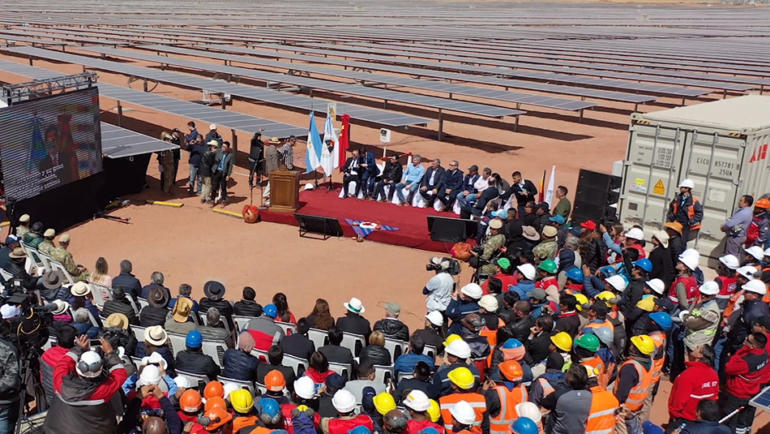China is the world’s largest producer of solar panel technology – tech that is now being exported and that is transforming energy sectors in countries such as Argentina, where the largest solar park in Latin America has recently been inaugurated.
CGTN’s Joel Richards reports.
More than a million solar panels are located some four thousand meters above sea level in Argentina. It is Latin America’s largest solar park – built in large part by Chinese funding and technology.
Cauchari is soon to become operational. The Chinese company that built this plant says it’s a game-changer for the northern province of Jujuy.
“The Jujuy province imported energy before this,” Tu Shuiping, President of PowerChina Argentina said. ‘Now with Cauchari, it can export energy.”
Few players in the renewable energy market are able to take on such a large scale project, budgeted at more than U.S. $350 million.
“The Chinese have a key variable on their behalf which many other people don’t,’ says Pablo Ferrara at the University del Salvador. If you analyze the cost of the megawatt per dollar, it was one of the most expensive (projects) compared to the region. But they have money, they can finance any kind of project. This is a U.S. $357 million project, and they have very low rates of interest.’
With its technology and finance, China is currently involved in a third of the renewable energy projects in Argentina, according to the energy ministry.
Under Argentine law, by the year 2025, renewable energy resources must account for 20 percent of the country’s energy matrix. There are currently just over 150 projects under construction.
‘Between all of that we have around 6.5 gigawatts of renewable power that will come on line by around 2021, and with that we would be around a ratio of 18/18.5 of the 20% goal, Juan Prioletta, Argentina’s Director of Renewable Energy, tells CGTN at his office in Buenos Aires. ‘We are proud of what we have achieved so far.”
Once it’s fully up and running, Cauchari will power 160-thousand homes, an important step in Argentina’s quest to diversify to cleaner and sustainable energy production.
 CGTN America
CGTN America

